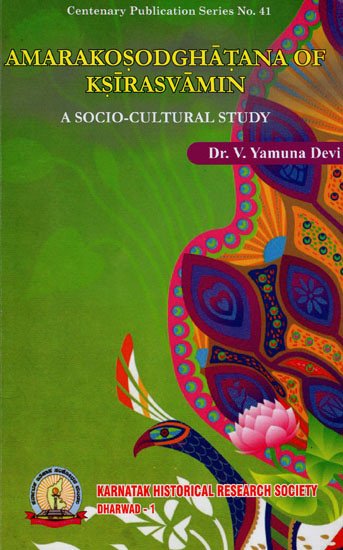Amarakoshodghatana of Kshirasvamin (study)
by A. Yamuna Devi | 2012 | 77,297 words | ISBN-13: 9788193658048
This page relates ‘Philosophy (Introduction)’ of the study on the Amarakoshodghatana of Kshirasvamin (in English) which represents a commentary on the Amarakosha of Amarasimha. These ancient texts belong the Kosha or “lexicography” category of Sanskrit literature which deals with the analysis and meaning of technical words from a variety of subjects, such as cosmology, anatomy, medicine, hygiene. The Amarakosa itself is one of the earliest of such text, dating from the 6th century A.D., while the Amarakoshodghatana is the earliest known commentary on that work.
Philosophy (Introduction)
The term ‘philosophy’ denotes the desire to acquire wisdom or knowledge. Darśana is generally the term used in Sanskrit as representing philosophy. It is termed so as it is the means by which one obtains the highest human pursuit–mokṣa.
Indian system of philosophical thought is divided into groups–
The Sāṅkhya, Yoga, Nyāya, Vaiśeṣika, Pūrvamīmāṃsā and Vedānta are the āstika darśanas while Cārvāka, Bauddha and Jaina are the nāstika darśanas. Some of the concepts of all these schools referred to by Amarakośa and Kṣīrasvāmin are presented below:
